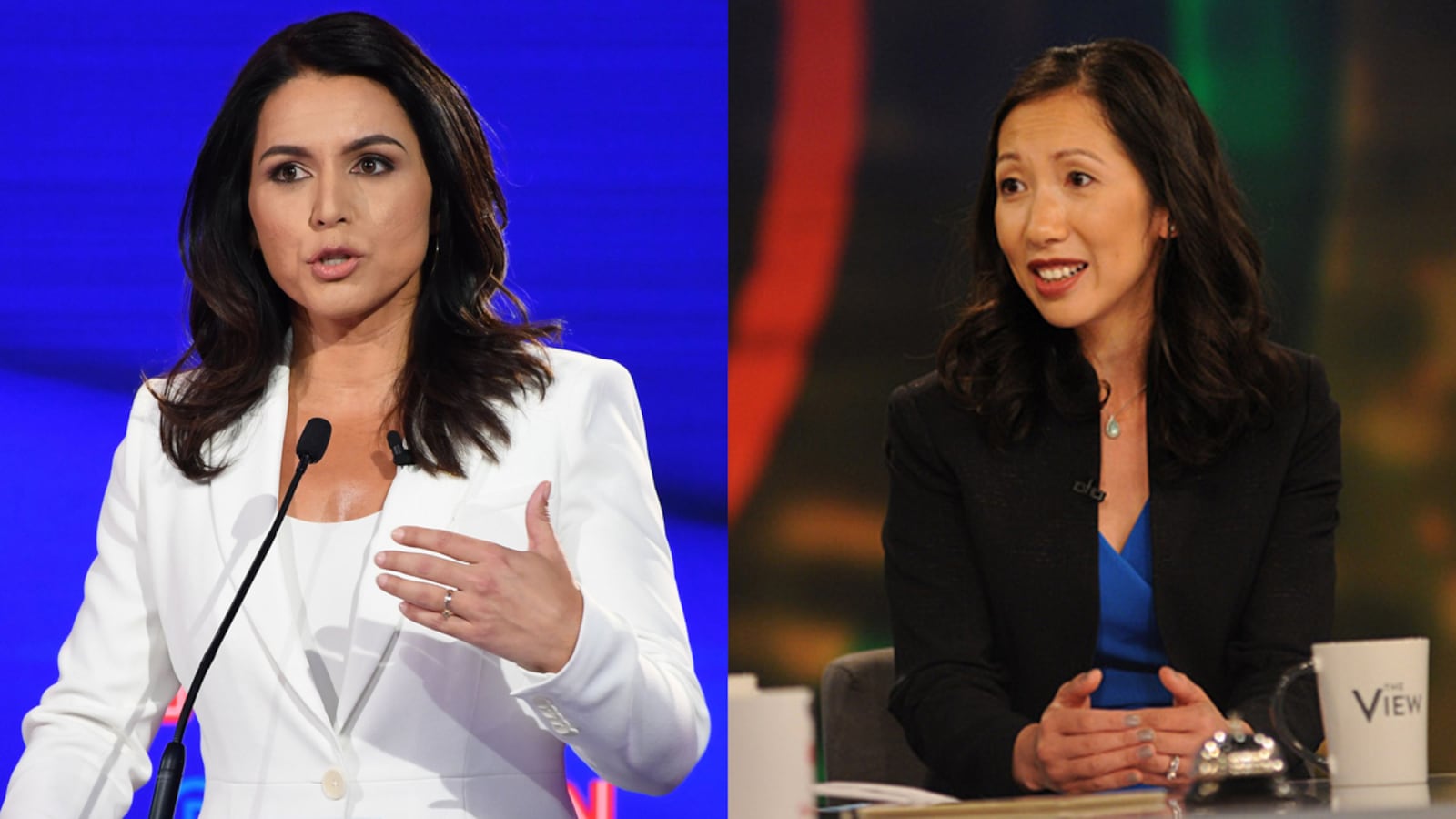While the Democratic candidates duked it out in the presidential debate Tuesday night, reproductive rights activists were engaged in their own heated debate on the future of abortion access, spurred by a surprising tweet from the recently ousted head of Planned Parenthood.
In a response to a question about reproductive rights, Democratic candidate Tulsi Gabbard told the audience she believed that abortion should be “safe, legal, and rare”—a phrase that Democrats once used to show their support for abortion, but has fallen out of vogue with activists who say it stigmatizes the procedure.
As a result, many reproductive rights advocates were shocked when Dr. Leana Wen—until recently the president of the nation’s largest provider of abortions—tweeted her agreement.
“I don’t agree with @TulsiGabbard on a lot, but do appreciate that she brought up the third rail for Democrats: that abortion should be ‘safe, legal, and rare,’” she wrote. “We should reduce the need for abortions by investing in prevention.”
Many of her fellow reproductive rights supporters pushed back, saying the phrase was an outdated and ultimately unhelpful way of talking about abortion.
“Should abortion be legal? Absolutely. Should it be accessible? Absolutely,” abortion rights activist Pamela Merritt told The Daily Beast. “But we don’t get there by framing it as a horrible thing a woman should have to endure a certain level of debasement and violence to be worthy of.”
Amelia Bonow, the creator of the viral #shoutyourabortion hashtag, was more explicit.
“HOW DID YOU GET THAT JOB AND WHY IN THE FUCK DID YOU WANT IT,” she tweeted at the former Planned Parenthood head.
Wen dug in further in a tweet on Wednesday, calling her statements a “rational" view of abortion and adding, “Pro-choice & progressive movements will lose unless we allow more people to join who do not agree 100% with the most extreme ideology.”
Wen was removed from her job at Planned Parenthood in July, over what she said was a fundamental disagreement about whether the organization should focus on abortion rights advocacy or health-care services. In an open letter, she wrote that she joined Planned Parenthood to advocate for a “broad range of public health policies,” but that the board had decided to “double down on abortion rights advocacy.”
“While the traditional approach has been through prioritizing advocating for abortion rights, I have long believed that the most effective way to advance reproductive health is to be clear that it is not a political issue but a health care one,” she wrote in a New York Times editorial at the time.
Planned Parenthood employees, meanwhile, maintained that it was possible—and even necessary—to continue both advocating for abortion rights and providing healthcare services. Alexis McGill Johnson, who replaced Wen as acting president of Planned Parenthood, wrote in her own op-ed that abortion has been “demonized and politicized, putting at risk sexual and reproductive health care for millions of people.” She added, “We will fight anyone who attempts to politicize that care."
The phrase “safe, legal, and rare” was coined by Bill Clinton in 1996, in an attempt to appease reproductive rights activists while mollifying right-wingers with ethical qualms about abortion. The wording was quickly picked up by many on the left, and even repeated by Hillary Clinton in her own 2008 presidential run. (The former first lady took the liberty of adding: “And by rare, I mean rare.”)
But activists have pushed politicians to drop the term in recent years, arguing that abortion should be treated like any other medical procedure—not stigmatized through a modifier like “rare.”
"This messaging tells those of us who’ve had abortions that we did something wrong to need an abortion and we shouldn’t do it again,” tweeted prominent activist Renee Bracey Sherman. “This messaging negates the fact that people need abortions for a myriad of reasons, which we explain every time we share our abortion stories.”
The phrase has largely been replaced with slogans like Barrow’s “Shout your abortion” or ReproAction’s “We love abortion.” Even the Democratic party dropped the word “rare” from its reproductive rights platform in 2012, instead saying abortion should be “safe and legal abortion, regardless of ability to pay.”
Planned Parenthood has also moved away from the “safe, legal, and rare” framework in recent years, towards what past president Cecile Richards called “safe, legal, and fair.” The organization has removed language from its website claiming that abortion made up only 3 percent of its services and recently issued a statement saying they were “proud to offer safe, legal abortion to those who need it.”
Merritt, who previously worked for Planned Parenthood in Missouri said Wen’s embrace of “safe, legal, and rare” abortions made it clear that the doctor was a poor fit for the organization.
“The ultimate problem with that kind of framing... is that it really is a slam and a disrespect to every single person who’s had an abortion,” she said. “And ultimately that means Dr. Wen was slamming and disrespecting one out of three women in America.”





